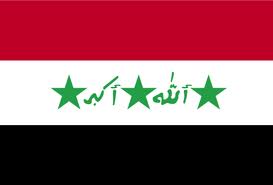Iraq was a stable country, until the Baath Party collapse. The conflict has divided the country on religious affiliation. A war
that will not benefit Iraq or the Arab World.
A conflict between the Sunni and Shia Muslims have been a conflict not much of who’s right and wrong, but a conflict of
control of Iraq.
The Recommendation of the Egypt Unity Democratic Party and United Arab Political Party is for Iraq to form an Interfaith Committee, include Shia and Sunni Muslims, Orthodox and Catholic Christians Religious Leaders. This meeting should
also include the Iraqi government and Iranian Shia Leaders.
The point of this Interfaith Committee is set a common ground on religious understanding and the common good that each share for society and promote Arab Nationalism.
Second, To form a Constitution based on Confessional Democracy (Republic) such as Lebanon
the President must be a Shia Muslim
The Prime Minister must be a Sunni Muslim
A Minister must be an Orthodox Christian
The Speaker of the House must be a Catholic Christian
The Interfaith Committee, Arab Nationalism and a Constitution based on Confessional Democracy (Republic) such as Lebanon will be an ideology that will end the conflict of all conflicts.
that will not benefit Iraq or the Arab World.
A conflict between the Sunni and Shia Muslims have been a conflict not much of who’s right and wrong, but a conflict of
control of Iraq.
The Recommendation of the Egypt Unity Democratic Party and United Arab Political Party is for Iraq to form an Interfaith Committee, include Shia and Sunni Muslims, Orthodox and Catholic Christians Religious Leaders. This meeting should
also include the Iraqi government and Iranian Shia Leaders.
The point of this Interfaith Committee is set a common ground on religious understanding and the common good that each share for society and promote Arab Nationalism.
Second, To form a Constitution based on Confessional Democracy (Republic) such as Lebanon
the President must be a Shia Muslim
The Prime Minister must be a Sunni Muslim
A Minister must be an Orthodox Christian
The Speaker of the House must be a Catholic Christian
The Interfaith Committee, Arab Nationalism and a Constitution based on Confessional Democracy (Republic) such as Lebanon will be an ideology that will end the conflict of all conflicts.

 RSS Feed
RSS Feed